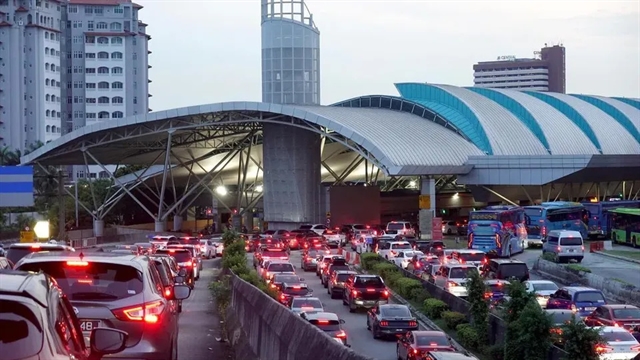 World
World

Britain and the European Union resume Brexit talks on Thursday with little hope of a breakthrough and fears that the fragility of Theresa May's government threatens further progress before the end of the year.
BRUSSELS — Britain and the European Union resume Brexit talks on Thursday with little hope of a breakthrough and fears that the fragility of Theresa May’s government threatens further progress before the end of the year.
The sixth round of negotiations is the first since EU leaders warned May at an October 20 summit that Britain had made insufficient progress to move on from divorce issues to discussions of a future trade deal.
They said they planned to start internal preparations soon with the aim of kicking off trade talks with Britain in December, but officials warned that that deadline now seems increasingly shaky.
"More progress needed on three key topics," EU negotatior Michel Barnier said on Twitter on the eve of the talks, along with a graphic showing the terms the remaining 27 EU states expect Britain to agree to.
This week’s talks feature a stripped down two-day schedule, with Frenchman Barnier and his British counterpart David Davis only set to meet on Friday morning, sources said.
’Do they have strength?’
The EU demands progress on three key divorce issues -- Britain’s exit bill to meet its commitments to the EU budget, the fate of the border between Northern Ireland and Ireland and the rights of EU citizens in Britain.
The British premier’s government however looks increasingly distracted, with the resignation of its aid minister over meetings in Israel on Wednesday adding to the sense of chaos since May’s disastrous showing in elections earlier this year.
"I see a strong willingness to come to a deal. I am confident that everybody understands what has to be done on both sides," an EU diplomat said on condition of anonymity.
"The question is do they have the strength? And will the moves be made in time by the end of November, first week of December?"
Britain must show progress by then if it wants the bloc to move to talks on a future relationship and a post-Brexit transition period at the next summit on December 14, European sources said.
Failure to do so would likely push back the move to February or even March, leaving only around six months to reach a deal by October 2018, the timeline Barnier has set in order for the withdrawal agreement to be ratified by Brexit day in March 2019.
’Major issues’
The EU says it wants Britain to provide written guarantees of a pledge to honour its financial commitments that May made in a speech in the Italian city of Florence in September.
"We don’t need speeches, we need commitments," the diplomat said.European Parliament chief Antonio Tajani -- whose institution will have the final vote on any Brexit deal -- last month set the bill at around EUR50 to 60 billion (US$58-70 billion), and said that the 20 billion proposed by London was "peanuts".
The parliament also rejected fresh proposals by Britain this week on protecting the rights of the three million EU nationals living in Britain after Brexit.
"We don’t recognise reports suggesting that a deal on citizens’ rights is almost finalised. There are still major issues that have to be resolved," said the parliament’s Brexit steering group, chaired by former Belgian premier Guy Verhofstadt.
EU ambassadors on Wednesday had their first internal "brainstorming" session looking at a working paper on future relations and a transition, expected to last two years, sources said.
"It was very theoretical because we haven’t dealt with phase one yet," a diplomatic source added. "There was a recognition of the limits of any internal preparation exercise until we have a clearer idea of what future relationship London wants." — AFP